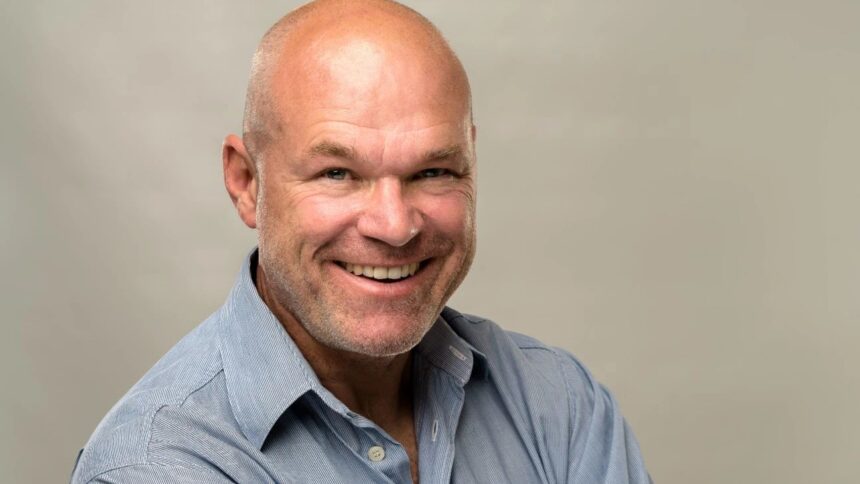Hey there! Welcome to the Hurwitz.tv “Leaders” interview series, where we chat with the leaders in business to discuss the latest industry trends and developments. In this series, you’ll hear from CEOs, CTOs, and other thought leaders as they share their insights on everything from business to entertainment.
In this interview, we talk to Uwe Boll, renowned authority and icon in the world of cinema.
- Can you share some insights into your journey from starting with limited resources to building a successful film company?
I come from a humble background, raised in a lower-middle-class family without any connections to the film industry or significant financial resources. From a young age, I understood the value of hard work as I embarked on a journey to support myself. To fund my first film, the comedy “GERMAN FRIED MOVIE,” which had a budget of just $50,000, I took on various jobs. I worked at a radio station, taught German to Russian emigrants, delivered newspapers door-to-door, and even tended to my grandma’s lawn.
Following my university education, I secured a position at a prominent TV production studio in Germany. Over the course of five years, I diligently climbed the ranks, gaining invaluable experience in budget management and shoot coordination. Through these experiences, I also established valuable connections, including financial institutions. This led me to establish my own German film production investor company.
The turning point came with the success of “HOUSE OF THE DEAD” in 2003, which allowed me to secure a staggering $400 million for subsequent films such as “ALONE IN THE DARK,” “IN THE NAME OF THE KING,” “ASSAULT ON WALL STREET,” and “FAR CRY.” Among over a hundred German film funds, my investor company stood out as the most successful in terms of return on investment.
My journey from humble beginnings to becoming a leading figure in the film industry is a testament to the power of determination and hard work. It’s a story of overcoming obstacles and achieving success against the odds.
- What motivated you to pursue a career in filmmaking and entrepreneurship?
My passion for movies and storytelling has been a lifelong affair. In my formative years, I frequented the local cinema in my hometown, immersing myself in timeless classics like “BEN HUR,” “QUO VADIS,” “RIO BRAVO,” and many more. These cinematic experiences ignited my love for storytelling and set me on a path dedicated to the art of film.
- Can you tell us about the creative process behind adapting video game narratives for the big screen?
I successfully brought “HOUSE OF THE DEAD” to life, fully developed and primed for success when I eagerly took on the project. It proved to be a lucrative endeavor, much to the delight of my investors, who were so pleased with the outcome that they encouraged me to explore more film adaptations of video games. However, the true challenge lies in crafting a cinematic experience that remains engaging and accessible to audiences who may not be familiar with the source game, ensuring that the film appeals to a wide-ranging viewership.
- Your films span various genres. How do you approach storytelling and creative vision when working on different types of projects?
I have always held a deep appreciation for diverse genres and themes, and I have never wished to confine myself to a specific genre. I consider myself a filmmaker in the truest sense, one who embraces a wide spectrum of storytelling possibilities, rather than pigeonholing myself as a director solely within the realms of horror, video games, or action.
- Are there particular themes or messages you aim to convey through your films?
The nature of my films varies, as some are primarily designed for pure entertainment without specific messages or political undertones, while others, such as DARFUR, ASSAULT ON WALLSTREET, TUNNELRATS, STOIC, HEART OF AMERICA, or RAMPAGE, are deeply rooted in reality and real-life situations. It is within these films, which often align with my writing passion, that my heart truly lies.
- You’ve ventured into the culinary world with the award-winning Bauhaus restaurant in Vancouver. What led to this culinary pursuit, and how do you balance it with filmmaking?
BAUHAUS had a memorable five-year run before the onset of the COVID-19 pandemic necessitated its closure. It was an experience filled with both highs and lows. The restaurant was celebrated for its delicious cuisine, stylish ambiance, and outstanding reviews. However, the hospitality industry, as illustrated by the challenges depicted in TV series like “THE BEAR,” can be a demanding and labor-intensive endeavor.
- We’re excited to hear about your upcoming film, “FIRST SHIFT.” Can you give us a glimpse of what to expect from this project?
In March, I had the opportunity to film in New York, and I’m thrilled to report that the project has exceeded our expectations. The audience is in for a treat as they follow our two talented lead actors on their exciting journey as newly partnered officers in the Brooklyn Police Department. Kristen Renton (known for her role in SONS OF ANARCHY) and Gino Pesi (renowned for his work in SHADES OF BLUE) share a remarkable on-screen chemistry. It’s my hope that this project evolves into a captivating television series that viewers will wholeheartedly embrace.
- Are there any other future endeavors or projects you’d like to share with your audience?
I currently have three exciting projects in the pipeline, eagerly awaiting the end of the strike so that we can begin securing talented actors for these productions. Among them, one stands as an action-packed exploration of the refugee crisis in Europe, while another promises a thrilling, “JOHN WICK”-style cinematic experience. These projects hold immense potential, and I’m enthusiastic about bringing them to life once the right talent is on board.
- What advice would you give to aspiring filmmakers who are looking to break into the industry and achieve success on their terms?
It’s wise to maintain financial discipline, ensuring that your operations remain cash flow positive. Spend within your means and prioritize being supportive and fair to your dedicated crew and talented cast. Moreover, it’s essential to avoid selling all rights in perpetuity, as this approach allows you to maintain control over your valuable library of work.
- Can you share a memorable experience or lesson from your extensive career in filmmaking?
The key determinant lies within the terms outlined in the contracts, rather than personal assumptions about the deal. It’s common for many filmmakers to channel their energy primarily into the creative aspects of filmmaking, often overlooking the crucial aspect of effectively promoting and selling their work.
- How do you see the film industry evolving in the coming years, especially in terms of technology and storytelling?
Artificial intelligence is set to play an increasingly vital role in the filmmaking industry, offering producers the potential for enhanced efficiency and cost savings. Already, we’ve witnessed significant advantages, such as the cost-effectiveness of digital shooting equipment, which has made filmmaking more accessible and economical.
- Are there directors, filmmakers, or artists who have significantly influenced your work or creative outlook?
From the very beginning of my journey, I found inspiration in the works of legendary directors like John Ford, William Wyler, and Orson Welles. As my passion for filmmaking grew, I also drew influence from the early creations of accomplished directors such as Oliver Stone, Martin Scorsese, and Sam Peckinpah.







